|
11/29/2017 Poetry by John GrochalskiMichael Tapp CC hate bryant oliver was the only black kid in my grade back in the 1980s when reagan was all the rage in poor neighborhoods and in central america reagan’s hate was a benevolent one he fought a war on drugs and put millions of dads and sons and brothers in jail bryant was a basketball star and a football star he didn’t like me because of my friend, billy calvin billy called bryant nigger lips in class he called him porch monkey whispered it to him while we were learning u.s. history billy said bryant ate watermelon hog jogs and possum grits billy had a lot of hate in him which came from his old man but he was learning at a young age to make it all his own back then i never understood why bryant didn’t beat the shit out of billy he was popular and had a lot of jock friends i never understood why he sat there and took it from him with that steely look of hate that i’ll never forget or why bryant transferred it to me on the playground pushing me around and calling me fat ass in front of all the pretty girls as billy laughed and laughed and got away with every single one of those words but i think now maybe it’s because i never said anything never told billy to shut his fat mouth never told a teacher what was going on in the back of that classroom and my silence looked like hate to bryant an american institution bigger than any of those words said back in those salad days of ronald reagan when quiet insults flew like bombs over libya and we didn’t learn a thing from our shared history other than to learn how to hate as if it were our only true curriculum as if it were the american way. black girl swinging black girl swinging alone in the park before eight in the morning white dress big headphones on high high as she’ll go with a smile that won’t stop as i sweaty from the heat go running by another shadow in the sun past parked cars with violent bumper stickers telling me who to vote for this world just a blue marble and thankfully not a cop in sight. the chicken the brooklyn sun is setting tonight over another national embarrassment and everyone on this bus sounds like a computer with the beeps and whooshes of their gadgets except this one guy sitting two seats away bug-eyed and foaming at the mouth singing into the white noise of our artificial intelligence then clucking like a chicken CLUCK! CLUCK! CLUCK! before howling like a wolf ready to blow this whole country down and threatening his new imaginary friend as i put away a book that i won’t remember and stare out the window at the cop cars taking hostage another garbage strewn block watching their blue and red lights swirl against the sunset and subway tracks as they got some kids pressed up against the wall of a closed bagel shop spread eagle and looking scared and i sigh too deeply at this imagine myself awash true sea of tranquility wading deep in a great and wondrous something else. 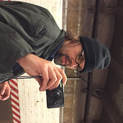 Bio: John Grochalski is the author of The Noose Doesn’t Get Any Looser After You Punch Out (Six Gallery Press 2008), Glass City (Low Ghost Press, 2010), In The Year of Everything Dying (Camel Saloon, 2012), Starting with the Last Name Grochalski (Coleridge Street Books, 2014), and the novels, The Librarian (Six Gallery Press 2013), and Wine Clerk (Six Gallery Press 2016). Grochalski currently lives in Brooklyn, New York, where the garbage can smell like roses if you wish on it hard enough. 11/29/2017 Poetry by Judy Shepps BattleWhen The Student Is Ready This day born of nothing contains everything technicolor bursts and surround-around sound swaddle naked hearts and silently converge reluctantly merge triumphantly emerge sacred moment gone as I name it gone as I claim it permanently impermanent perfectly imperfect life lingers long enough to teach remedial surrender this sultry summer dawn. Ode To The Poet Doing Her Thing Poetry is a form of protest as well as a tribute to beauty. Softly speak the words. Gently cry the canticles. Behold the weeper crouched over aging typewriter. Listen to her tear saturated fingertips making words. Touch the dots, commas and wrinkled consonants. Smell creation and taste its muted message. Words protest by being silent too. Listen to the anti-dialectical nature of Momma Nature. Hug the beat of the sunken guitar harmonizing with turned-on piano. Weird music spirals to soul shattering crescendo and dies in diminution. The music is our tune. The changing beat is us. Rock with me. Twist ‘til sacroiliac groans in protest and continue ‘til soft sound vibrates with unequal harmony. Follow it Follow it and live it Fully Weep gently poet into creative hands covering cynical eyes. Crescendo begets crescendo and the mind splits into twenty equal pieces. Bio: Judy Shepps Battle has been writing essays and poems long before retiring from being a psychotherapist and sociology professor. She is a New Jersey resident, addictions specialist, consultant and freelance writer. Her poems have been accepted in a variety of publications including Anti-Heroin Chic, Ascent Aspirations; Barnwood Press; Battered Suitcase; Caper Literary Journal; Epiphany Magazine; Joyful; Message in a Bottle Poetry Magazine; Raleigh Review; Rusty Truck; Short, Fast and Deadly; the Tishman Review, and Wilderness House Literary Press. 11/28/2017 Poetry by Miriam KramerAndrea Merletti CC Unstruck The cardiac plexus is a network of nerves that electrifies the heart. A direct blow knocks the wind out so fast, trying to replace the air is like inhaling smoke. Each gasp tastes like hot coal. Attempting to laugh is a poor choice, even for a masochist. I choked at the sight of you, heart racked with laughter, lungs on fire. While a drilling a hole in my jaw, a dentist told me, “be grateful for your strong bones.” I have not broken one to this day, though I have tumbled down hills learning to rollerblade, been kicked by strong thighed cyclists, played fight club with walls – leaving knuckle holes in every place that never felt like home. And I have been hit pretty damn hard in the chest. If I am not good at signing up for pain, I am not good at anything at all. I have never tried to hide this, I displayed it on my body with pride, displaced reflection masking the broken at my core. I wore the neon band aids. The ones that scream “I dare you to ask me what stupid shit I did this time.” insides held together, lit up brightly like it was 1993. My outsides ached to glow, to show what I could not articulate. The English translation for the heart chakra means unstruck. The sound of no objects hitting one another. The Zen conundrum of one hand clapping. Sitting on a bench in the cold was when I noticed your green eyes. You broke the stare, curious of my hand clasped in yours, pulled my clenched fist to your mouth. That kiss spilled questions on my flesh. You turned your melting ice eyes back to mine, I was reborn in that glance. I told you then, it was ok to ask. My backbone grew tall with confidence. In Buddhism, the heart chakra is called Dharma. This phenomenon of essential energy resides behind the spine, protected by the breast plate. You place your hand on my chest, tell me I am not broken, you see light emanating from my cracks. Kintsugi means to join with gold, a concept born in 15th century Japan, when a tea bowl was repaired with no attempt to disguise the damage. The first time I noticed gold in your eyes, you kissed the scars on my shoulder, learning my history with your mouth. There was electricity in your trembling jaw. Five Seconds and Counting I have started closing my eyes while driving at night. I have gotten up to five seconds. I tell myself the roads are familiar. I tell myself my other senses will take over. I tell myself maybe I will crash. Maybe I will crash, and because I did not see it coming, no one will blame me. No one will blame me for my mangled remains, for the hard, clockwise jerk of the steering wheel on the overpass on Union Avenue, for the bouquet of fake flowers at exit 13 on highway 287. I close my eyes. I hold my breath. I count to five. When I open my eyes, the night sky is blinding. When I open my eyes, I am still driving. When I open my eyes, I am alive. I try not to ask why. I just close my eyes and count to five. I hold my breath. I open my eyes and count forty more seconds. I can hold my breath for 45 seconds before instinct kicks in. I trust the burning in my lungs more than the fear living in my stomach. I trust the total darkness behind my eyelids more than the noise inside my mind. With my hands gripped on the steering wheel, my white knuckles shine under passing street lights. I tell myself my bones are strong. I tell myself I am weak. I tell myself maybe I will survive. Maybe I will survive, and because I did not see it coming, I will stop blaming myself. I will stop blaming myself for my mangled remains, for my cringes at careful hands and familiar touch, for the tears after sex with the man I love. I close my eyes. I hold my breath. I count to five. 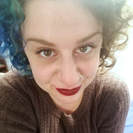 Bio: Miriam Kramer studied Creative Writing at Pacific University, and works at a local bookstore. Her work has been published in The Rising Phoenix Review, and Indigent Press. She lives in Bound Brook, NJ, with her faucet obsessed cat, Ernie. Miriam is overly sentimental, often rescuing items from other peoples’ garbage. 11/28/2017 Poetry by Dave WorrellAndrea Merletti CC last call jodie’s wiping down the bar and nothing’s funny now my bag’s still there under the booth nobody messed with it this time minutes to catch the last chance 2:14 to camden the train hangs off the side of the bridge gotta stop looking down at the frozen river plunge underground narrow tracksquealing twisting tunnel signals fly past red yellow green searing light city hall station leaps up out of darkness hard bump stop my raggedy bag spills open wide all my papers fly wild across the aisle under six rows of empty seats cockroach scramble across the floor scoop up my shit somebody’s yelling hold the doors but the motorman doesn’t want to wait the doors slam shut the train speeds on far into deep sleeping suburbs Red Brick Row House, 4051 Spruce William J. Young (1946-1968) He had the ground floor railroad flat. The same cracked sidewalk out front, cabbage weeds still thriving in crevices. On the façade, a lone strand of ivy beginning to redden. October fades as I peer through the window he once looked out from. His Harley hit a concrete wall at a hundred. They say he’d been working on that bike, removed the seat, rode it standing up. By then the Army had me. I couldn’t go to the funeral. I’d ridden behind him on that bike, accelerating up the narrow ramp from Admiral Wilson Boulevard, curving low left, howling manic onto 130 South, a screeching stop in the White Castle lot. When he was sixteen, cirrhosis killed his father. All that summer, he stayed in the cellar with Tolstoy and Nietzsche, taught himself Beethoven’s Appassionata. Two years later, playing Lizst afternoons on the grand piano in Houston Hall, long hair flying across his forehead, he always left with a woman. One day it was Ruth, a nice Jewish girl who knew how to calm him, but a year later he said he was choosing turbulence. New and alive, his final letter said. At peace.  Bio: Dave Worrell’s chapbook “We Who Were Bound” was published in August 2012 by Casa de Cinco Hermanas Press. His ekphrastic collection “Close to Home” was published in 2015, featuring paintings by Catherine Kuzma. Dave’s poems have appeared or are forthcoming in Slant, Canary, Shot Glass Journal, Referential Magazine, Wild River Review, U.S. 1 Worksheets, Exit 13 and elsewhere. He has performed his music-backed poems at Chris’ Jazz Café in Philadelphia and The Cornelia Street Café in New York. 11/27/2017 Poetry by Gabe KahanDon Harder CC Spiral Oh madam, dearest waitress of cosmic bronze and feather. We have stumbled on a ghost town of bugles and sesame seed angels. We have spun voodoo dolls from ruins. The moonlight in tandem with my pupils spilling hot black coffee across a truck stop diner's tiled floor. We almost fly off the pavement, our footsteps so full of bliss they're angry. But we know like we know our father's crooked heart that the redness in our cheeks will pack up soon enough and hitch a train full of spiraling repetition. The Practice Poem I am accosted by the black milk laying dead in my eyes on a Twitter profile picture. It is night in this poem. It must be time for a momentary revolution of self. Pop in Lemonade to the imaginary discman. I feel a malnourished lapse of presence coming on like an orgy. It shoots straight up from the belly of a whale budding out across the dark gray. The discord kisses me like a cold sore. It has sprouted. But I'll sing and I'll sing it again. I look into a musician's eyes wish I could write a folk song about the drying paint and malaise in my lungs back and forth struggling like a tortoise my days are carcinogenic seashores my nights are shamanic mahogany leather I wish I could put words into the brackish water tucked behind my lips as I swim I close my eyes and I see all their faces nasty and gesticulating like a guru gone mad overflowing with shadows how ugly you appear how ugly we all are to play in a web manicured like a grocer's trash bag the moments are electric pivotal full like a moth so I pierce my lip and decorate my palms puncture the gurgling past now so frail a testament a riverbed feast the mandolin is finally in key I say my future will be warm stuffing pillows at day break a soft goodbye till tomorrow like the way my brain paints together Brooklyn as a little boy closing the door to his family's apartment High Security Clearance i don't remember when the feeling started but here it is and here it will forever stay the smell of life made a home inside my nose without me ever asking to borrow its library card because who can read the wind when you feel swallowed up in a desert writing your way into the scene 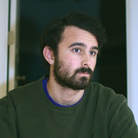 Bio: Gabe Kahan is a poet, freelance writer, visual artist, and the founding editor of the literature and arts journal, Taxicab Magazine. He has forthcoming poetry in The Occulum, The Bitchin' Kitsch, The Paragon Journal, and others. He lives and writes in New York and Washington, DC. He never leaves the house without his Burt's Bees beeswax lip balm. You can follow him on Twitter @GabeKahan or visit his website at gabekahan.com. 11/26/2017 Poetry by Steve KlepetarNeal Wellons - CC Braying at the Moon You could stand here forever, braying at the moon. Or so it seems, when night and moonlight freeze on the lake and time disappears. Across the hills, wolves moan. Their voices paint shadows on the star-sprinkled sky. No wind. A weight of stillness, and you sink into yourself, recalling your blood as it pulses through your body, carrying light to your hungry brain. Staying Out All Night We walked to the river, climbed down beneath the bridge, listened to cars rush overhead, watched boat lights spread on the water. We sat on warm stones as they slowly cooled, and slowly in the darkness we came to ourselves. We spoke softly. Earth felt new in our fingers, smoky and raw. Fish splashed near the shore, the sound rich in our ears. All night we lingered in that velvet world, prowled the shore, lithe as cats, eyes glowing with the gentle light of stars. To Drown the Night We are tramping on streets far from home. Here we are, breathing humid air, bodies packed in close. Though we carry bold signs, we are terrified as we cross bridges toward the park. Dogs growl as we pass. Women watch us from their yards, faces pulled into shadow and mist. Everywhere, men with guns and clubs. This city sinks faster every year. After a hard rain, fish swim in puddles on streets near the shore. The city pushes out into wetlands. Tall buildings rise along the coast. Music pours from cafes, flags flutter in the wind. We step with our aching feet. Our throats burn, sunshine stabs our eyes. Here in this parade, we are bodies, we are clay. We are droplets in a sea, gathering to drown the night.  Bio: Steve Klepetar lives in Saint Cloud, Minnesota. His work has received several nominations for Best of the Net and the Pushcart Prize, including four in 2016. Recent collections include Family Reunion (Big Table), A Landscape in Hell (Flutter Press), and How Fascism Comes to America (Locofo Chaps). 11/25/2017 The Blankness at the Edge by Devon BalwitThe Blankness at the Edge We were the people who were not in the papers. We lived in the blank white spaces at the edges of print. It gave us more freedom. We lived in the gaps between the stories. (Margaret Atwood) The bullets ping chips from walls and enter sandbags with a dull staccato. Head down, away from gaps no longer veneered by glass, I am nothing if not cautious. My memories live only between cupped palms, face pressed close. What I was has no place. What I will be hunkers, undecided. Alert to pretention and pretending, snipers stand ready to drop the forgetful. Still, daily, hunger drives me to probe. The least scrap swells me bulbous, an explosion of spores. I master the mycelium creep, the age’s new locomotion, the code of the like- minded, the subtle semaphore. Not whole, I’m proximate. Bone piles remind me what’s worse. 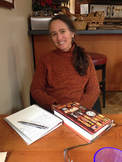 Bio: Devon Balwit teaches in Portland, OR. She has six chapbooks and two collections out or forthcoming: How the Blessed Travel (Maverick Duck Press); Forms Most Marvelous (dancing girl press); In Front of the Elements (Grey Borders Books), Where You Were Going Never Was (Grey Borders Books); The Bow Must Bear the Brunt (Red Flag Poetry); We are Procession, Seismograph (Nixes Mate Books), Risk Being/ Complicated (with the Canadian artist Lorette C. Luzajic), and Motes at Play in the Halls of Light (Kelsay Books). Her individual poems can be found here and in Cordite, The Cincinnati Review, The Carolina Quarterly, Fifth Wednesday, Red Earth Review, The Fourth River, The Free State Review, Rattle, Posit, and more. 11/24/2017 Loaf by Christopher McCarthyLoaf Throw open and kick-stumble the door shut. Struggle. Jostle the deadlock and twiddle the chain. Struggle. Quick button the little twisty lock in the handle. Sink down, butt against the door, slowly, slowly to the floor. It’s an empty little one-bedroom. But the furniture is gone – not that there was much, the few foldup chairs, the TV, floor matt, everything. The whole kitchen is cleared out. The walls, all white, white, white, but still the mattress sans bed sheets, and still the empty floor... ‘if all the works of Joseph Conrad are written on raw salmon and wrapped around your head, as the salmon starts to cook, starts to pinken from brain waves, tales of being at sea will show up like grill marks.>>>’ Face in hands, desire sleep. Free thought. Up for days, and now want only to sleep. Up for four days, head pounding, thoughts reeling, throat killing, reeling some more, mind seizing up, caught up in a net, cooking brain, and all going down from here. Strangle up. Every breath is a newfangled, mad-driving thought… ‘what is that?>>>’ There is a gurgling black cube on the floor. Be silent now… ‘There it goes again!>>>’ Reach for the door. No, don’t dare escape. Gurgling, pulsing, grinding, whining, screaming, a cube vibrating… ‘it’s heralding the mad mechanisations of body munching, feed you to the fishes frenzy polar vortex.>>>’ Cower… ‘It stopped. Maybe it will just go away.>>>’ Listen in agony. Watch. The cube lets out a puff of steam. It starts up again. Cower even lower on the floor. Sense time winding backwards, slowly, circle-semi in the counter-clockwise direction, winding back, back, back, back. Shake. Time is winding back, back, back. Shake uncontrollably. Totter over, ear to veneer, feel the vibrations of the cube across the floor… ‘Virgin Mother of Christ! Hallucinations! All of it. Dream mountain dream. White walls, white tundra, white trucks, white grotto, white sky, white sheets, sheets of snow, nowhere to go, all in your mind, wait. White, white, white clouds, clouds in the sky, weather station, drool stream, wifi, data entry, power supply.>>>’ Press up on elbows, knees, up… ‘It pulses in robot speak! Hear its invective of zeros and ones!>>> All thoughts come to a standstill. An exultant sense of self-preservation, of escaping danger, fills the whole of the moment. Enter calm. Predict nothing. Analyze nothingness. Plan non-existence. The past is a blank slate and time winds counter-clockwise, circle-semi, and always in irregular intervals. Chisel away doubts… ‘there can be no questions left if the mind is nothing but nothingness.>>>’ It is a moment of total relief and spontaneous, purely animal joy. Make peace with the nothing, the black cube, who now shares this one-bedroom. Drop. Joy-slip. All reprieve is followed by an inevitable, horrific relapse into raving insanity… ‘A child again! A child again! You will revert into a nitwit baby, cooing, goob goob murmuring, feckless, hairless skin bag, shrinking, melting clock stop, drain down an animal meat soul central viaduct.>>>’ Weep. Tears sting. Notice emptiness. Raise legs. Stand… “steam clouds the sunlight of the mind.>>>’ The cube is the only other presence, moving and breathing, apart from a face of tears. Hear the intimate inviting words. Each whining gurgle from the machine is a low, guttural HILARY BOOK. HILARY BOOK. A pause follows… ‘HILARY BOOK. HILARY BOOK? What are you saying? HILARY BOOK. HILARY BOOK?>>>’ Pulse. Listen to the mechanical HILARY BOOK. HILARY BOOK. Persevere to the completely unfamiliar. Reach the peak of exhaustion, the climax unannounced and unprecedented. Drop into a trance. Dark electronic music plays in the background. A strange and terrible sensation creeps across skin. Hear distant music. But what makes it all the more tormentingly painful is the idea, more a sensation than a perception, the sense that tiny voices make these sounds—that HILARY BOOK. HILARY BOOK. HILARY BOOK. HILARY BOOK. HILARY BOOK. HILARY BOOK. HILARY BOOK is whirling at a dizzying speed now, getting faster and faster, while the voices, simultaneously become smaller and smaller. Hear it drilled into the core of the mind at the volume of a whisper. Twenty, or perhaps thirty matryoshka dolls separating top from bottom, and with each separation a new, littler voice adds itself to the medley. Clutch head in hands. A direct unmediated, sensation, a deluge, drowning in an ocean of sound, touching every nerve before the most tormenting sensation of all: a little boy singing a far away melody in another dimension, HILARY BOOK. HILARY BOOK. Shiver. Feel cold now. Fever break. Rest the weight of the body on both elbows. Crawl towards the cube humming in the centre of the room. The walls darken and wisp again with flashing nightlight across white. This unnatural pulsing light flows and flows, midnight bloodletting. Crawl nearer the cube. Forearms pass over some disgusting black snake. Hear the blood-draining hum. See the faint, and yet inviting, orange glow. The cube is warm. It breathes warmth into the cold dark room. Circle around the cube. Drift off to the sound of its lullaby. Sleep. Time moves forward. There is pounding. There is drumming, banging, and the jangling of chains… “Open the door, you’ve left the chain on, Gear!” The pounding continues… “Gear I know you’re there! The door isn’t bolted. Let me in.” Rise up slow. Push up from floor elbows, arms, and knees. Rise. Flick lights. Smell alluvial wetland armpits. Twiddle the chain free. Taste ash in mouth. Open door grog… “Hi Catriona, what would you like?” “My stuff. Brought you a coffee.” Mainline caffeine. Get warm now. Waken. Enter sun: natural light on white. Play attentive. Focus on dialogue… “Poor Gear. You didn’t think you’d still be living here after Terry got back from Calcutta did you?” Look perplexed. Make comprehending statements. Show keys. “But there’s nothing, nothing of yours here.” “My breadmaker. Fresh bread! Unplug it. There’s butter in the fridge.” Bio: Christopher McCarthy is an associate member of the League of Canadian Poets. He lives in Iqaluit, Nunavut with his wife Stefanie. 11/22/2017 Poetry by Lindsey WoodwardThomas_H_photo Blind Mythology She is blind mythology with piercing duality and tireless mysteries, her many miseries lure her away so very far from my mind and her own -- Together we have compared histories, written and revised our own elegies, concluded that we have lived like ostriches and fed reality to the porch squirrels and alley cats -- I listen for her airy morning footsteps, the softest steady beat as though she's tiptoeing -- she probably is, always careful not to upset the halcyon dawn, but her jewellery clamours out of tune sends her stumbling -- she howls and curses and falls in her sleep - down two gyrating flights of stairs, down a fourteen storey elevator shaft, wakes up with five cracked ribs and a fractured collarbone, but can't recall her dreams -- she says the vivid ones happen during the day, in the rich, warm soak of afternoon, while drinking in sunlight through old windows, while boiling water for tea, or smoking her thirtieth cigarette -- She keeps me awake, streaking pillows with mascara, having arguments with god, with herself -- sometimes when she can't sleep, she wakes me to crawl in beneath the blankets and asks me to tell her about angels and heaven, and beautiful things -- sometimes I do and she's out before I'm done speaking, or sometimes I tell her the truth. Winter Crisis Version I In the hollow mists of swollen membranes of angry white walls that try to hide our smiles and our expanding/contracting pupils imploring the eggshell nurses and the heavenly fucks of whispering darkness of unrelenting nighttime The ocean passed us by without a beckon a beacon I called to my shipwreck he replied with the fury of a thousand choking lunatics sputtering on bile and waste Make haste as the blankets are tossed to the washers And drink the slaves to emancipate yourself, You crying ember, from Your loathsome fortress! I was destined to fall into flames and emerge as a snowy ashen goddess my romantic ideals have been swallowed by my insatiable appetites I’m starved for a Rose Ravenous for a thoughtful gesture Why can’t you love me like the sun loves the sea as it sinks and simmers? I’m anchored to my truth but truth is hard to discern when the World is your oyster but you can’t find the pearl. Wounded My laughter erupted in red sharp and unbridled until men with stethoscopes reduced this volcano to ash There is no laughter here. My hairpin lips creak oily pink leave a crooked path of crumbs along rims of tea-stained mugs Trace my past across deeply nicked hardwood where I danced in red stilettos over tufts of tissues that wiped rivers from painted cheeks It’s dark in here without a window, like a torn orifice sewn shut - I’m left alone to pick at loose stitches.  Bio: Lindsey Woodward began writing poetry at age 9 because she found pencils and paper easier to communicate with than people. 25 years later, she still prefers the company of books and cats. Born and raised in Port Hope, Ontario, she inevitably fled and studied art history and English at Carleton University in Ottawa. Upon completion of her studies, she returned to the area although she remains uncertain why. Her chapbook Huckster Piss (2008) was published by In/Words Press, and she is a regular contributor on The Mighty website. 11/22/2017 Poetry by Larry RogersDon Harder Heredity Growing up in a small Arkansas town In the dark ages Of the 1950s When your father And your father’s father Had required Shock therapy You learned to hate The word heredity You learned to hate Those whispering The word heredity Behind your back You learned to hate Those who asked How’s your old man When they knew He was undergoing Another round Of shock treatments And the way they Looked at you, watching For confirmation Of that old adage Like father like son Your first thought Was to suggest They all go to hell But a young boy Talking like that Would have been The confirmation They were looking for Coping I’m whiskey drunk and whistling Dixie past a Confederate graveyard in a piney woods town, limping toward a boarding house room where tonight, my first night back in the Real World, I’ll be grateful for the hissing and rattling of a radiator that distracts me from the constant shelling in my head, and grateful for the sirens on the street outside that boarding house that distance me from the sound of small arms fire in my head. I’m whiskey drunk and whistling Dixie past a Confederate graveyard in my hometown; collar turned up against the wind that isn’t blowing. 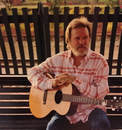 Bio: Larry Rogers is a poet-singer/songwriter. Golden Antelope Press recently published a full-length collection of his poems titled "Live Free or Croak." It's available at Amazon and Barnes and Noble. |
AuthorWrite something about yourself. No need to be fancy, just an overview. Archives
April 2024
Categories |
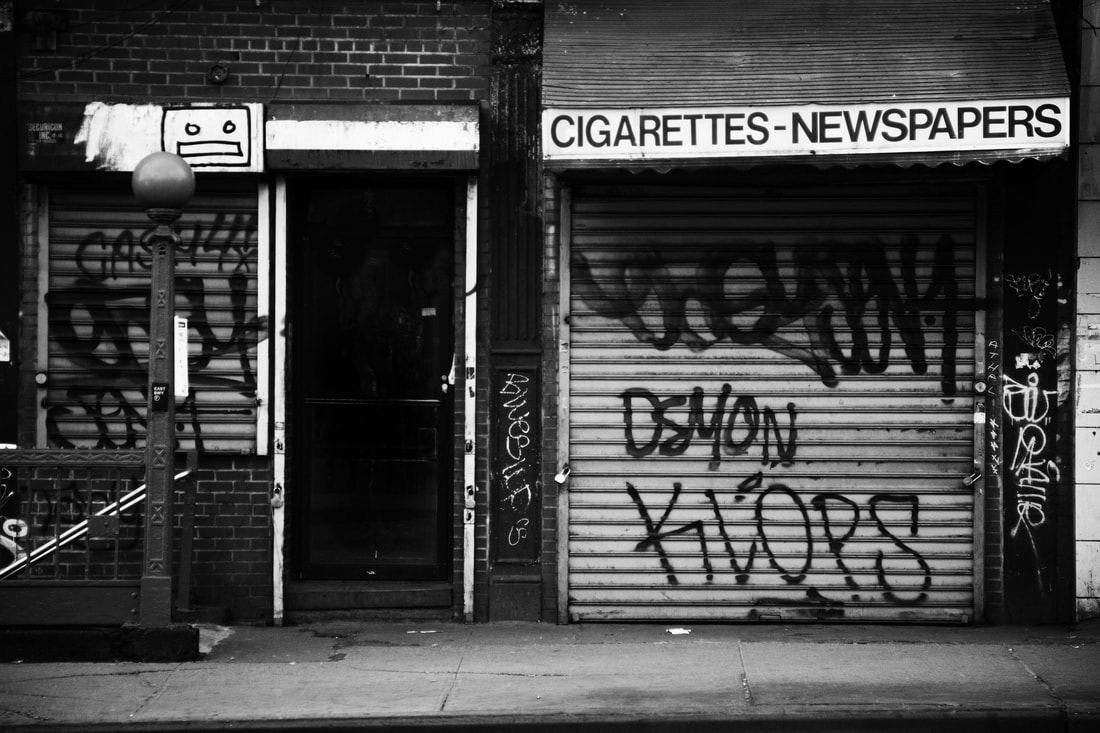

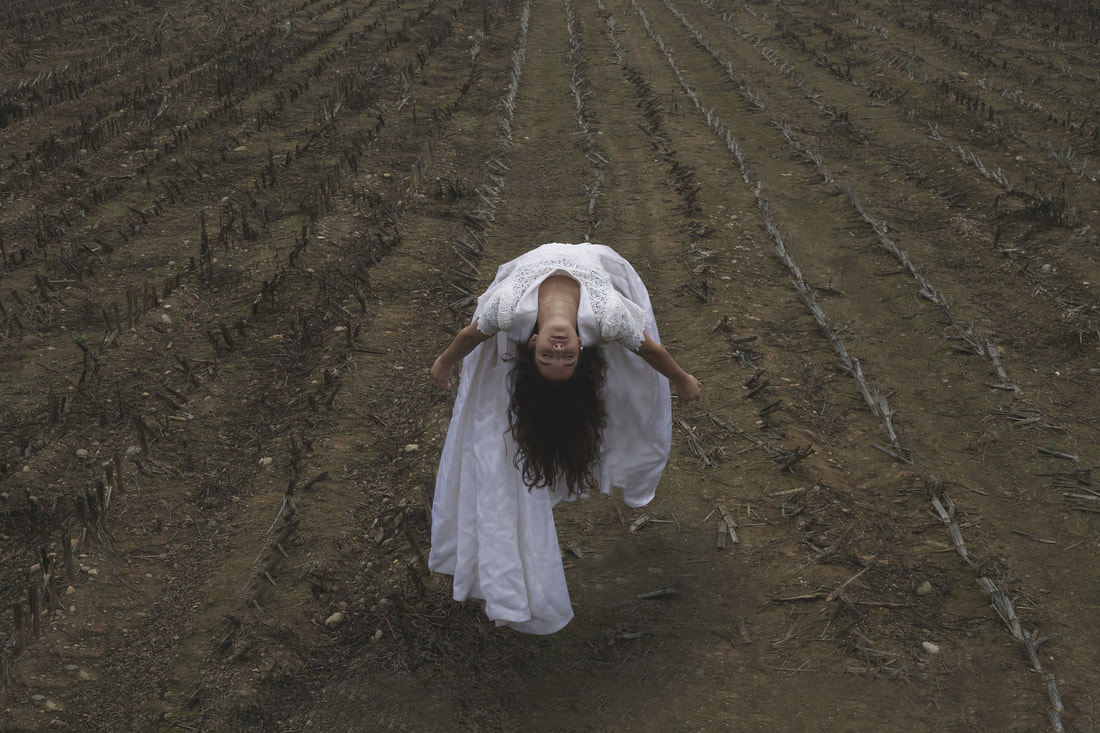
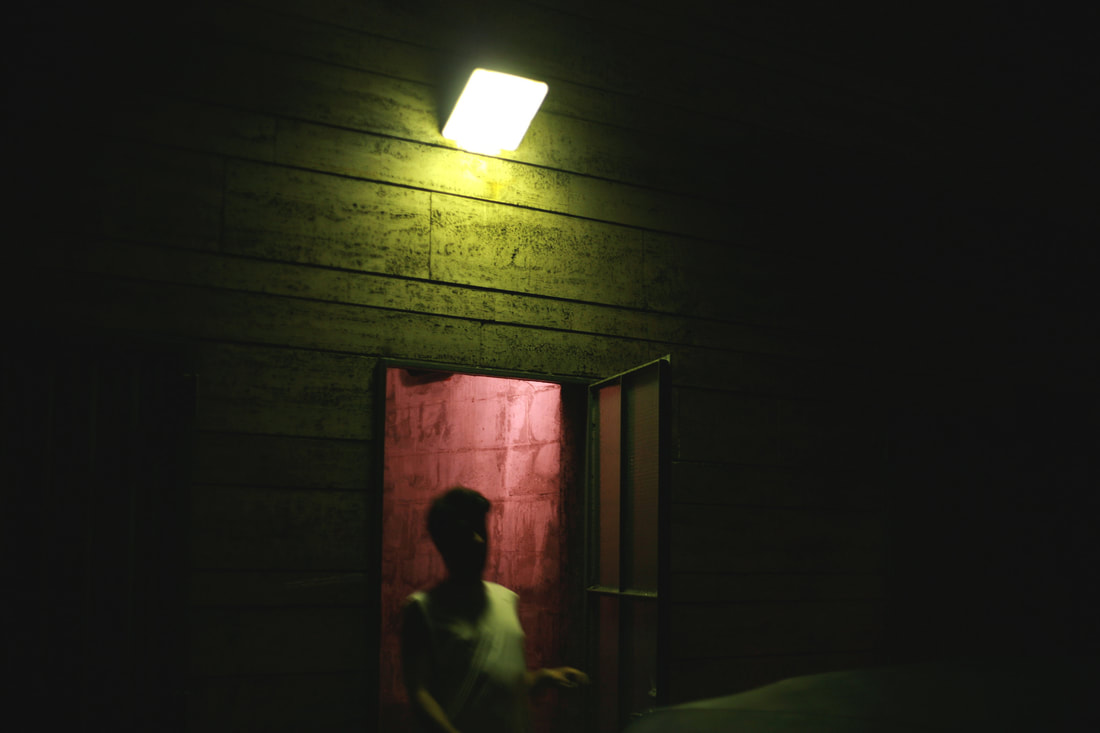
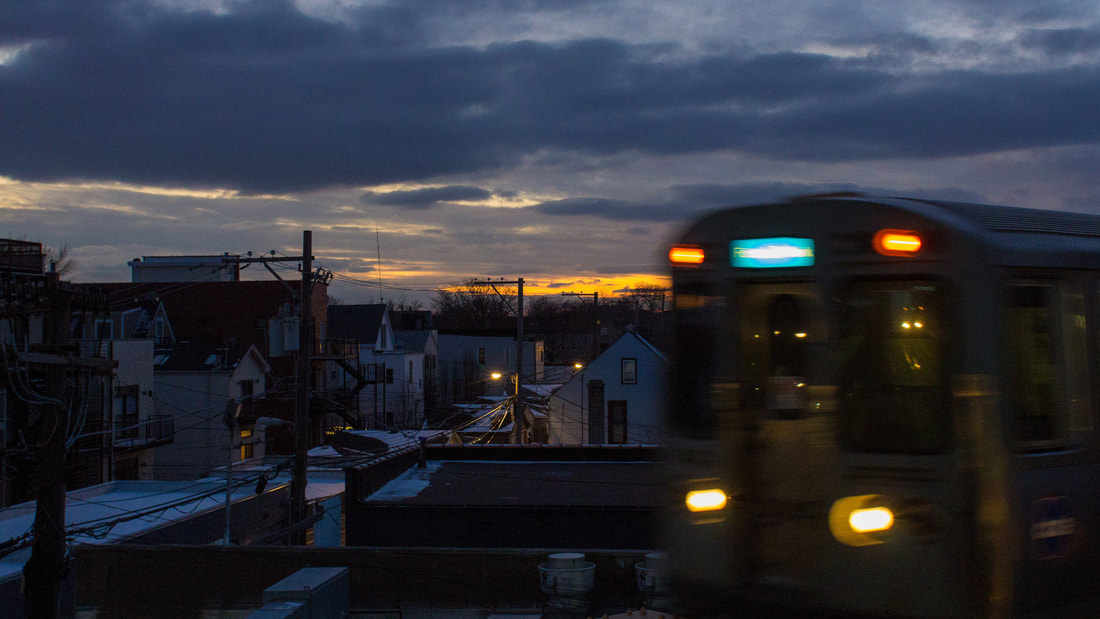
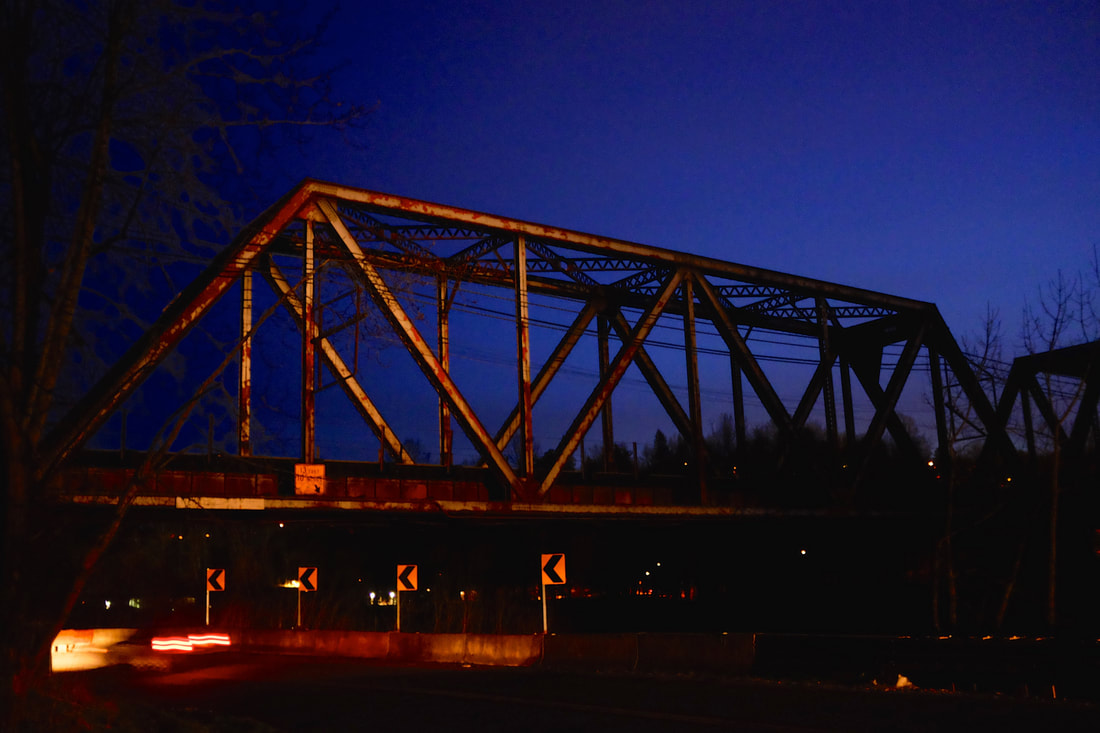
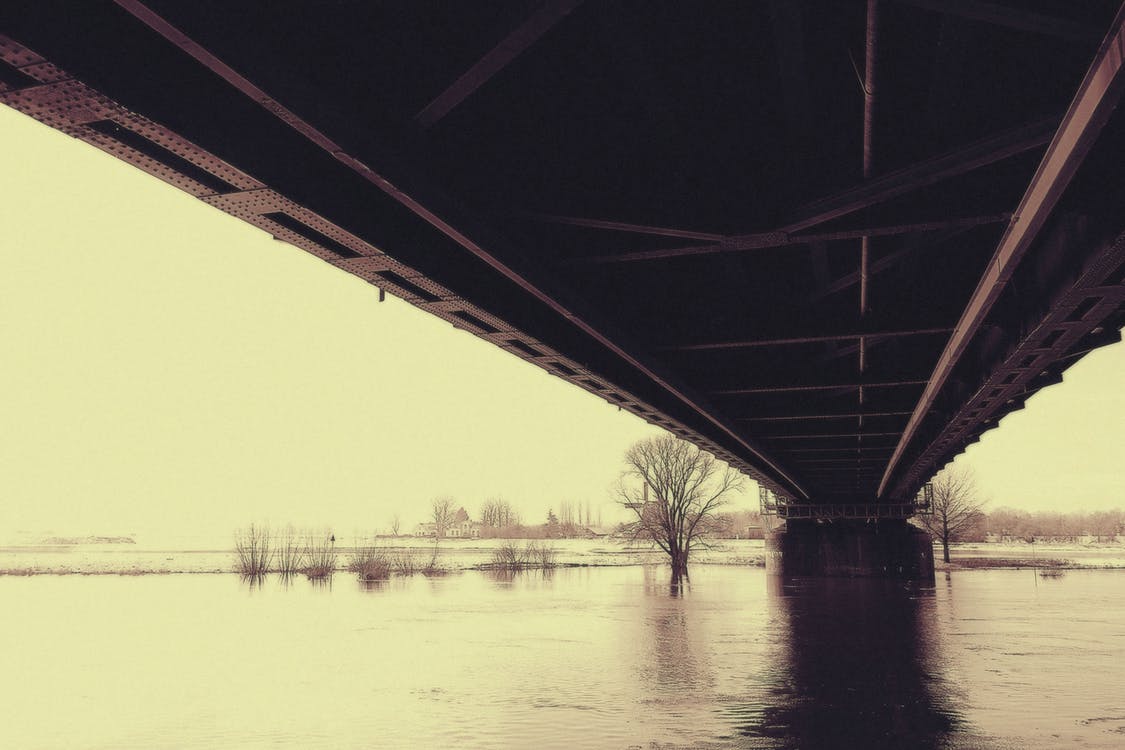

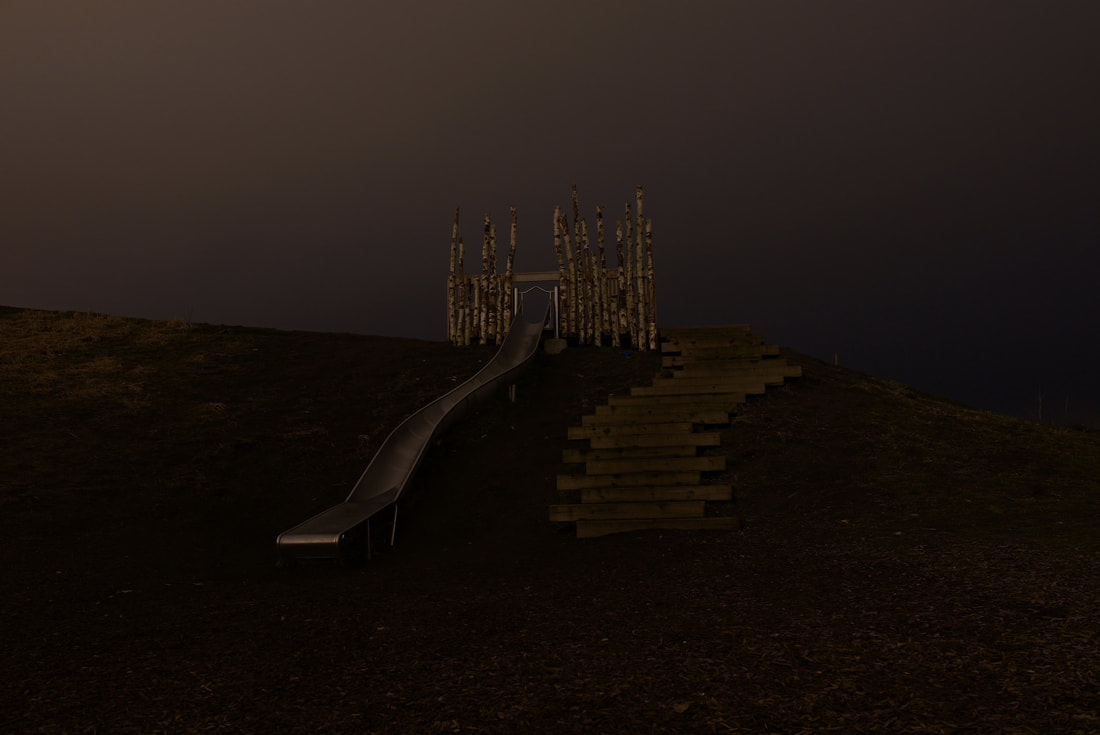
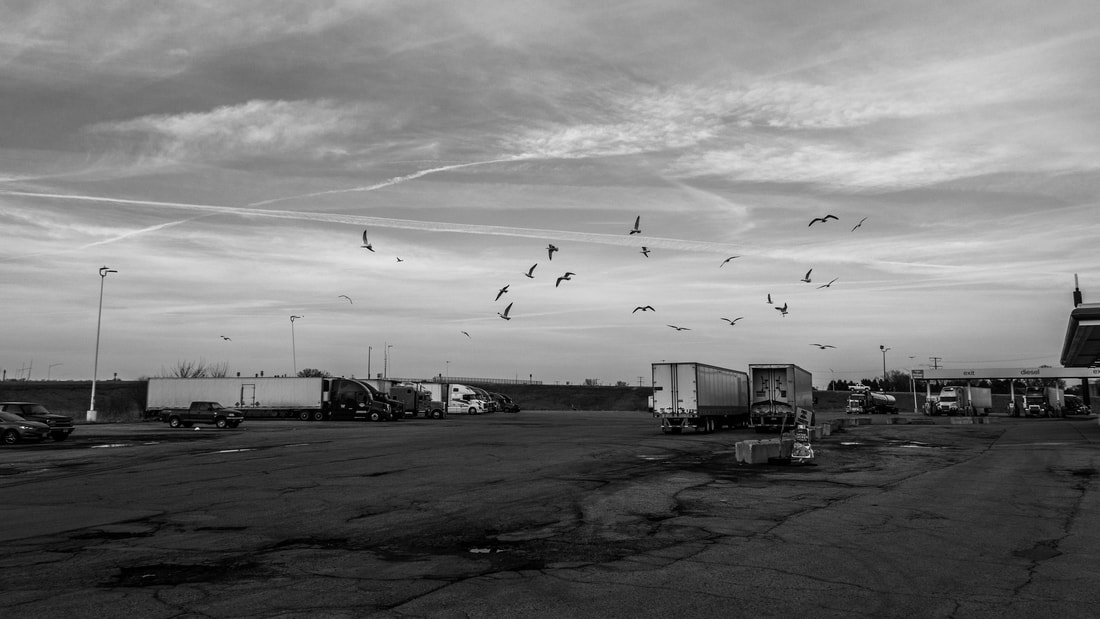
 RSS Feed
RSS Feed
